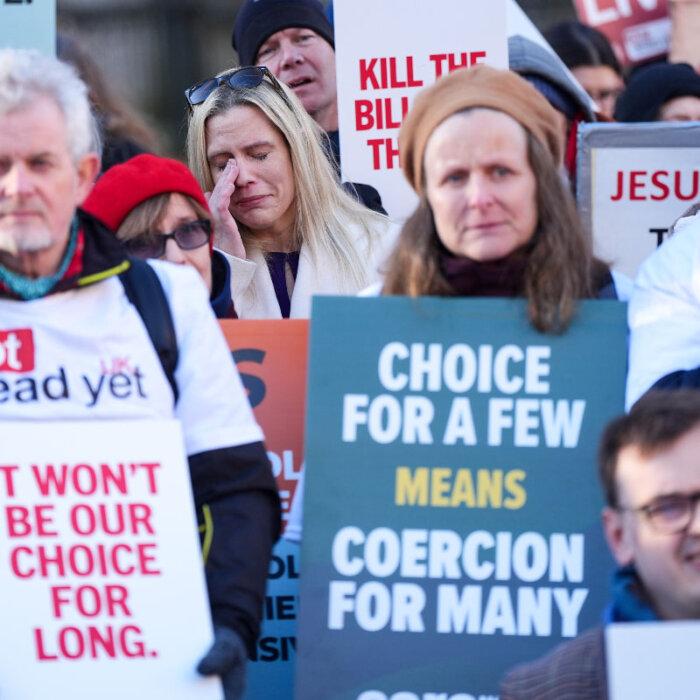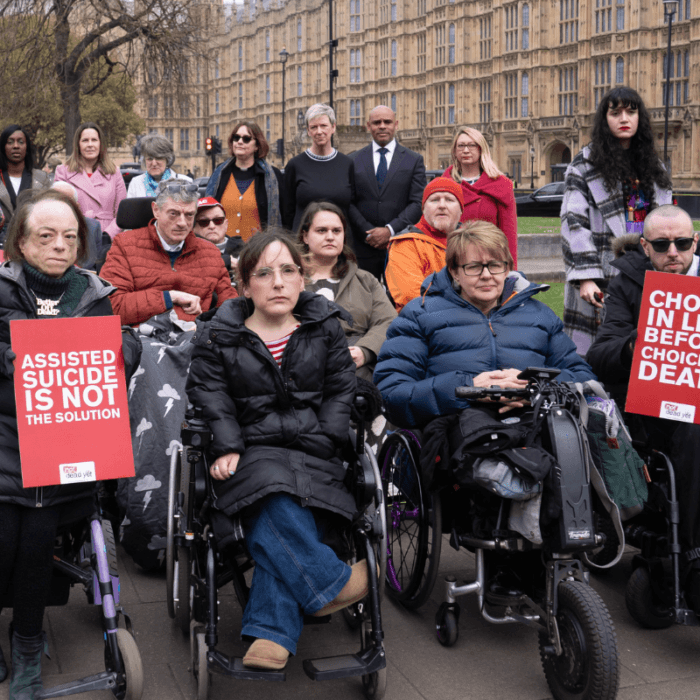MPs in the House of Commons have voted in favour of banning advertisements for assisted suicide, if the service becomes legal.
On Friday, the Terminally Ill Adults (End of Life) Bill returned to the Commons for its second day at Report Stage, where members continued debating and voting on amendments.
MPs argued that legal safeguards were needed to stop advertisements for assisted suicide, with one member warning that otherwise, such ads could appear on social media platforms like TikTok.
Members also voted in favour of an amendment from Labour MP Dame Meg Hillier, which would ensure doctors are prohibited from raising the topic of assisted suicide with under-18s.
If passed, the bill would legalise medical-assisted suicide for terminally-ill adults with less than six months to live. However, during the Committee Stage, members expressed concern that there was no means of protecting terminally ill children approaching their 18th birthday from having the conversation broached with them.
Risk of Ads on TikTok
A majority of MPs separately voted down an amendment proposed by Labour MP Paul Waugh, who argued it would have strengthened Leadbeater’s bill by narrowing the exceptions to the advertising ban.During the debate, Waugh said: “Advertising works because we human beings are suggestible, prone to messaging, to visual cues, and hints. Older people are bombarded with adverts for everything from stair lifts to care homes.
“One person’s advert, though, is another person’s public information campaign.”
The MP for Rochdale continued that his amendment would prevent a future secretary of state who believes in assisted suicide to authorise an ad campaign.
He said: “It could be a government approved plotline in a soap opera. It could be an ad read out by a podcaster that ever-so-subtly sounds like it’s a news item—or even their own opinion.
“Many in this House rightly try to protect teenagers from online harms. But the online harm of an ad or website about assisted dying shared on TikTok could be a reality, without the tightest safeguards of my amendment.”

Conservative MP Dame Harriett Baldwin spoke in support of Leadbeater’s clause and Waugh’s amendment, raising in particular her concerns that without strict regulation, “even the NHS itself will be able to advertise to potential customers.”
Bill Still Not Safe
While the speaker had urged members to keep their comments relevant to the amendments discussed, several MPs continued to raise their longstanding concerns over the safety of the bill as a whole and that it still fails to protect vulnerable people.Conservative MP and medical doctor Dr. Ben Spencer said that the “fundamental problem” with the bill is that it “turns a complete blind spot” on those who are suicidal or mentally ill, an issue which he said should have been resolved early on in the process of scrutiny.
Spencer said, “It is absolutely scandalous that we have got to this point and we are still having this debate around the core concepts, which is why this bill should have been dealt with properly from the start with a Royal Commission or review, so that we do not have this situation where, at Report Stage, we are still debating core principles.”
Responding to the progress made on the bill, Sarah Wootton from the pro-assisted suicide group Dignity in Dying said, “Our country is closer than ever before to the safe, compassionate, and tightly regulated assisted dying law that so many people want, from all walks of life and every part of the country.”
However, former MP Caroline Ansell from the Christian social policy charity CARE said: “We urge MPs to vote this bill down. It is irredeemably flawed in principle and in detail. Parliament should close the door to assisted suicide and focus on truly compassionate and life-affirming forms of support.”
The bill is expected to have its final debates and move onto Third Reading on June 20, when MPs will vote for or against the proposed law as a whole.







